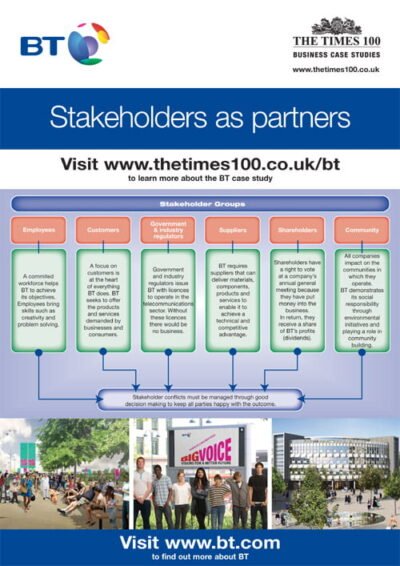The integration of artificial intelligence (AI) into urban planning represents a transformative shift in how cities are designed, managed, and experienced. Urban planning has traditionally relied on a combination of human expertise, historical data, and community input to shape the development of urban spaces. However, the advent of AI technologies has introduced new methodologies that enhance decision-making processes, optimise resource allocation, and improve the overall quality of urban life.
By harnessing vast amounts of data generated by urban environments, AI can provide insights that were previously unattainable, enabling planners to create more efficient, sustainable, and livable cities. AI’s capabilities extend beyond mere data analysis; they encompass predictive modelling, real-time monitoring, and automated decision-making. For instance, machine learning algorithms can analyse traffic patterns to forecast congestion and suggest alternative routes, while natural language processing can facilitate better communication between city officials and residents.
As urban populations continue to swell, the need for innovative solutions becomes increasingly urgent. AI offers a promising avenue for addressing the complex challenges faced by modern cities, from infrastructure strain to environmental sustainability.
Summary
- AI is revolutionizing urban planning by providing data-driven insights and predictive analytics to improve decision-making processes.
- AI is transforming transportation and traffic management through real-time monitoring, predictive maintenance, and autonomous vehicles, leading to more efficient and safer urban mobility.
- Smart infrastructure integration with AI enables proactive maintenance, energy efficiency, and resource optimization, contributing to sustainable and resilient urban development.
- AI plays a crucial role in sustainable development and environmental planning by analysing environmental data, predicting climate change impacts, and supporting green infrastructure initiatives.
- AI enhances public safety and security in urban areas through predictive policing, emergency response optimization, and surveillance systems, raising ethical concerns and privacy issues.
AI’s Impact on Transportation and Traffic Management
Transportation systems are the lifeblood of urban environments, and AI is revolutionising how these systems are managed. One of the most significant applications of AI in this domain is in traffic management. By employing machine learning algorithms that analyse real-time data from various sources—such as traffic cameras, sensors, and GPS devices—cities can optimise traffic flow and reduce congestion.
For example, cities like Los Angeles have implemented AI-driven traffic signal systems that adapt in real-time to changing conditions, significantly improving travel times and reducing emissions. Moreover, AI is playing a crucial role in the development of autonomous vehicles (AVs), which promise to reshape urban transportation landscapes. AVs rely on sophisticated AI systems to navigate complex environments safely.
As these vehicles become more prevalent, urban planners must consider their implications for road design, parking infrastructure, and public transport systems. The integration of AVs into existing transportation networks could lead to reduced traffic congestion and improved safety outcomes, but it also raises questions about land use and the future of public transit.
Smart Infrastructure and AI Integration

The concept of smart infrastructure is intrinsically linked to the application of AI in urban planning. Smart infrastructure refers to the use of advanced technologies to enhance the performance and efficiency of urban systems. This includes everything from smart grids that optimise energy distribution to intelligent waste management systems that monitor bin levels and schedule pickups accordingly.
AI plays a pivotal role in enabling these systems to function effectively by processing vast amounts of data and making real-time adjustments. For instance, in Singapore, the integration of AI with smart infrastructure has led to the development of a comprehensive urban management system that monitors everything from traffic patterns to energy consumption. The city employs AI algorithms to analyse data collected from various sensors throughout the urban landscape, allowing for proactive maintenance of infrastructure and improved service delivery.
This not only enhances operational efficiency but also contributes to a more sustainable urban environment by minimising waste and optimising resource use.
AI’s Role in Sustainable Development and Environmental Planning
Sustainable development is a critical focus for urban planners as cities grapple with the impacts of climate change and resource depletion. AI offers powerful tools for enhancing sustainability efforts through improved environmental planning. By analysing data related to land use, air quality, and energy consumption, AI can help planners identify areas where interventions are needed most urgently.
For example, machine learning models can predict the environmental impact of proposed developments, allowing planners to make informed decisions that prioritise ecological preservation. Additionally, AI can facilitate the implementation of green technologies within urban settings. Smart energy management systems powered by AI can optimise energy consumption in buildings by analysing usage patterns and adjusting heating or cooling systems accordingly.
Cities like Barcelona have embraced such technologies, resulting in significant reductions in energy consumption and greenhouse gas emissions. Furthermore, AI-driven predictive analytics can assist in disaster preparedness by modelling potential environmental hazards and informing urban resilience strategies.
AI’s Influence on Public Safety and Security
Public safety is a paramount concern for urban planners, and AI is increasingly being leveraged to enhance security measures within cities. Advanced surveillance systems equipped with facial recognition technology and behaviour analysis algorithms can help law enforcement agencies monitor public spaces more effectively. For instance, cities like London have implemented AI-driven CCTV systems that analyse crowd behaviour in real-time, enabling authorities to respond swiftly to potential threats or emergencies.
Moreover, AI can assist in emergency response planning by analysing historical data on incidents such as fires or natural disasters. By identifying patterns and predicting where incidents are likely to occur, planners can develop more effective response strategies that minimise risk to residents. The integration of AI into public safety initiatives not only enhances security but also fosters a sense of community trust when implemented transparently and ethically.
Community Engagement and AI in Urban Planning

Community engagement is a cornerstone of effective urban planning, ensuring that the voices of residents are heard in the decision-making process. AI technologies can enhance this engagement by providing platforms for residents to share their opinions and feedback on proposed developments. For example, virtual reality (VR) simulations powered by AI can allow citizens to visualise potential changes to their neighbourhoods before they occur, fostering informed discussions about urban design.
Furthermore, sentiment analysis tools can be employed to gauge public opinion on various issues by analysing social media posts or online surveys. This data-driven approach enables planners to understand community concerns better and tailor their strategies accordingly. Cities like Amsterdam have embraced such participatory approaches, using AI to facilitate dialogue between residents and planners while ensuring that diverse perspectives are considered in shaping urban policies.
Ethical Considerations and Challenges of AI in Urban Planning
While the potential benefits of AI in urban planning are substantial, ethical considerations must be at the forefront of its implementation. Issues such as data privacy, algorithmic bias, and transparency pose significant challenges that require careful navigation. The collection of vast amounts of personal data for AI applications raises concerns about surveillance and individual privacy rights.
Urban planners must ensure that data is collected ethically and used responsibly while maintaining transparency about how it is utilised. Algorithmic bias is another critical concern; if AI systems are trained on biased datasets, they may perpetuate existing inequalities within urban environments. For instance, predictive policing algorithms have faced scrutiny for disproportionately targeting certain communities based on historical crime data.
To mitigate these risks, it is essential for urban planners to engage with diverse stakeholders during the development of AI systems and implement robust oversight mechanisms that promote fairness and accountability.
Future Possibilities and Innovations in AI for Urban Planning
The future of urban planning is poised for remarkable innovations driven by advancements in AI technology. As machine learning algorithms become more sophisticated, their ability to analyse complex datasets will continue to improve, leading to more accurate predictions and insights for urban planners. The integration of AI with other emerging technologies—such as the Internet of Things (IoT) and blockchain—will further enhance the capabilities of smart cities.
One exciting possibility lies in the development of fully autonomous urban environments where AI systems manage everything from traffic flow to energy distribution seamlessly. Such environments could lead to unprecedented levels of efficiency and sustainability while significantly improving residents’ quality of life. Additionally, as cities become increasingly interconnected through digital platforms, opportunities for collaboration between governments, private sector entities, and citizens will expand, fostering innovative solutions tailored to local needs.
In conclusion, the intersection of artificial intelligence and urban planning presents a wealth of opportunities for creating smarter, more sustainable cities. As technology continues to evolve, it will be imperative for planners to remain vigilant about ethical considerations while embracing the transformative potential of AI in shaping the future of urban living.
In a related article on how a digital workplace augments employee productivity, the impact of technology on urban planning is further explored. The integration of AI in city development not only shapes the future of cities but also enhances the efficiency and productivity of employees working within these smart urban environments. As cities become more digitally connected, the need for a digital workplace becomes increasingly important in ensuring that employees can effectively collaborate and communicate in a fast-paced and technologically advanced setting.
FAQs
What is AI?
AI stands for artificial intelligence, which refers to the simulation of human intelligence in machines that are programmed to think and learn like humans.
How is AI shaping the future of cities and urban planning?
AI is shaping the future of cities and urban planning by providing solutions for traffic management, energy efficiency, public safety, and infrastructure maintenance. It can also help in predicting and mitigating the impact of natural disasters.
What are some examples of AI applications in urban planning?
Some examples of AI applications in urban planning include smart traffic management systems, predictive maintenance of infrastructure, energy usage optimization, and real-time monitoring of public spaces for safety and security.
What are the benefits of using AI in urban planning?
The benefits of using AI in urban planning include improved efficiency in resource allocation, better decision-making based on data analysis, enhanced public safety, and the ability to predict and prevent potential urban challenges.
Are there any challenges or concerns related to the use of AI in urban planning?
Some challenges and concerns related to the use of AI in urban planning include data privacy and security issues, potential job displacement due to automation, and the need for ethical guidelines and regulations to govern the use of AI in urban environments.
 BT A3 ePoster Edition 16 "Stakeholders as partners"
BT A3 ePoster Edition 16 "Stakeholders as partners"  Developing the skills for managing change (PDF)
Developing the skills for managing change (PDF) 